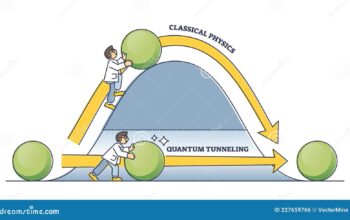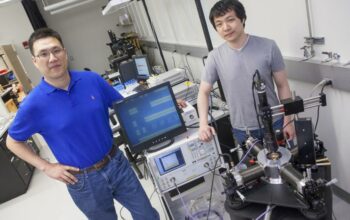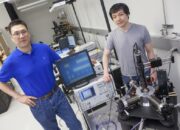Nuclear physics is a profoundly captivating field that delves into the fundamental constituents of matter—nuclei of atoms—and their interactions. The disciplines surrounding this area of study have burgeoned over the decades, paving numerous pathways for individuals who have honed their expertise in nuclear physics. If you have invested time and intellect into understanding the peculiarities of atomic nuclei, several career avenues are available that engage both theoretical and practical applications of nuclear science.
1. Academic Research and Teaching
One of the most fulfilling arenas for nuclear physicists is academia. Universities and research institutions provide fertile ground for those interested in diving deeper into theoretical concepts or experimental investigations. Here, researchers engage in groundbreaking studies, probing the mysteries of nuclear reactions, particle interactions, and properties of exotic nuclei. Beyond research, teaching in higher education allows these experts to impart knowledge to the next generation of physicists.
Institutions like Massachusetts Institute of Technology (MIT) or Stanford University not only allow for expansive research opportunities but also emphasize interdisciplinary collaboration. This fosters an environment where physicists can explore the intersection of nuclear physics with fields such as materials science or health physics.
2. Government Laboratories
Many nuclear physicists find employment in government laboratories, such as Oak Ridge National Laboratory or Lawrence Livermore National Laboratory. These facilities are pivotal in conducting research that fuels national security initiatives, energy production, and medical technologies. In addition to theoretical explorations, projects may involve significant experimental work with particle accelerators or nuclear reactors.
Often, these roles merge fundamental science with applied engineering, leading to innovations in nuclear technology, including advances in reactor design, radiation detection, and waste management strategies. Scholars in this realm contribute to enhancing national policies surrounding energy and safety, highlighting the profound societal implications of nuclear research.
3. Private Sector: Energy Production
The nuclear energy sector remains a substantial employer for nuclear physicists. With a growing global focus on sustainable energy, the safety and efficacy of nuclear power plants have come to the forefront. Employment at companies such as Areva or Westinghouse Electric Corporation presents opportunities for physicists to work on reactor operation, nuclear safety evaluations, and developing technologies that minimize environmental impact.
This sector not only demands rigorous scientific expertise but also an understanding of regulatory frameworks and public policy, emphasizing the multifaceted role of nuclear physicists in addressing the energy crisis. The changing dynamics of climate change position nuclear physics professionals at the heart of significant transitional efforts toward sustainable energy solutions.
4. Health Physics and Medical Physics
Another enticing dimension where nuclear physics intersects with real-world applications is in the healthcare sector. Medical physics offers career opportunities in hospitals and clinical settings, focusing on radiation therapy, diagnostic imaging, and the development of radiopharmaceuticals. Nuclear physicists in this field ensure that radiation is used safely and effectively in medical interventions.
Radiation oncologists and medical physicists collaborate intricately, utilizing knowledge of particle interactions to enhance treatment modalities for cancer patients. Careers in this realm underscore the humanitarian aspect of nuclear research, as physicists lend their analytical skills to improve patient outcomes and advance therapeutic technologies.
5. Nuclear Policy and Advocacy
As societal concerns regarding nuclear energy and weapons continue to proliferate, there is an increasing demand for nuclear physicists in the realm of policy-making. Organizations such as the Nuclear Regulatory Commission (NRC) require experts to aid in crafting regulations that balance safety, economic viability, and environmental protection.
Policy advocacy roles necessitate a nuanced understanding of scientific principles, public perception, and ethical implications, creating a critical juncture where science meets governance. Those in these positions wield the potential to shape the dialogue surrounding critical issues such as nuclear waste disposal, non-proliferation treaties, and the transition to renewable energy sources. The synthesis of scientific rigor and public policy highlights a significant, though often overlooked, domain for nuclear physicists.
6. Sovereign and International Liaison
On an international scale, fields such as nuclear non-proliferation and international relations call for nuclear physicists with a penchant for diplomacy. Institutions like the International Atomic Energy Agency (IAEA) foster an environment where physicists can utilize their expertise to promote the peaceful use of nuclear technology and prevent proliferation concerns. These roles often require geopolitical insight and the ability to navigate complex negotiations, expanding the relevance of nuclear expertise beyond technical confines.
7. Emerging Technologies and Start-ups
With the rise of new technologies such as advanced radiation detectors, nuclear fusion, and modular reactors, innovative start-ups are increasingly hiring nuclear physicists. These companies focus on Ground-breaking approaches to energy production and safety solutions that leverage the latest scientific advancements. The entrepreneurial landscape welcomes those with a robust understanding of nuclear principles and a visionary mindset, presenting an exhilarating opportunity to be a part of pioneering ventures.
In conclusion, studying nuclear physics opens a multitude of doors across sectors ranging from academia and government to healthcare and private industry. Each domain offers a unique intersection of challenges and rewards, urging physicists to contribute their expertise meaningfully. The precarious balance between fascination and responsibility that accompanies nuclear research emphasizes the critical role of skilled professionals in navigating the intricate world of nuclear technology and its societal implications. The journey into nuclear physics is, above all, a commitment to understanding the unlocks of nature to contribute positively to the world.












